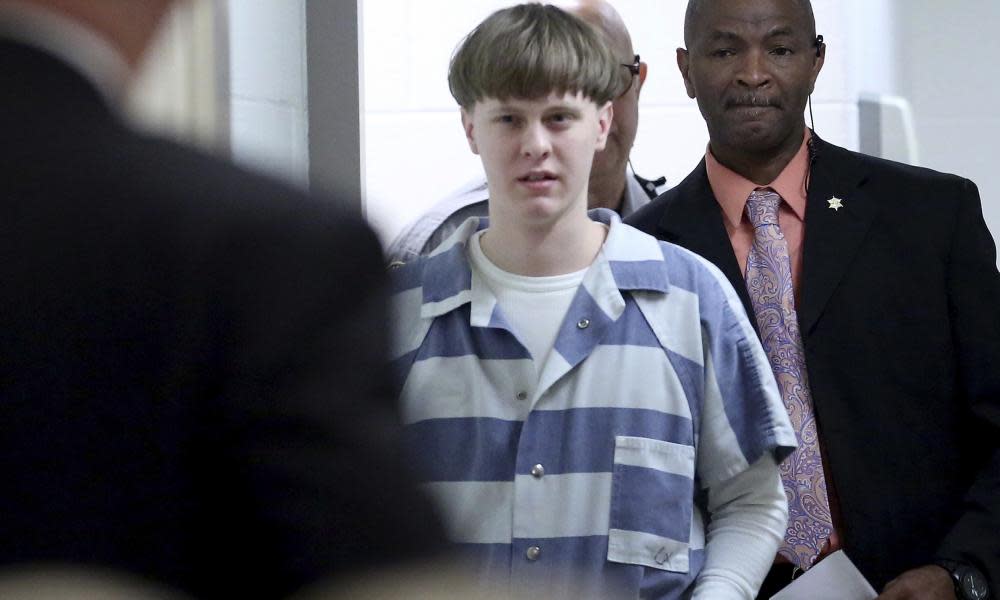Charleston church shooter staging hunger strike in prison

The white supremacist mass murderer Dylann Roof has staged a hunger strike this month while on federal death row, alleging in letters to the Associated Press that he has been “targeted by staff,” “verbally harassed and abused without cause” and “treated disproportionately harsh”.
The 25-year-old Roof, who killed nine black church members during a Bible study at a famous church in Charleston, South Carolina, in 2015, told the AP in a letter dated 13 February that the staff at the federal prison in Terre Haute, Indiana, feel justified in their conduct “since I am hated by the general public”.
A person familiar with the matter said Roof had been on a hunger strike but was no longer on one, as of this week. The person could not immediately provide specific details about the length of the hunger strike or whether medical staff needed to intervene. The person was not authorized to discuss the matter publicly and spoke to the AP on condition of anonymity.
The mass shooting was brought up several times during the Democratic debate in Charleston on Tuesday evening, ahead of this Saturday’s primary contest in the state.
Democratic candidates for the party’s nomination debated about the lack of success in achieving federal gun control legislation in the US in recent years, despite the plethora of devastating mass shootings around the country, in schools, houses of worship and other public gathering places.
The debate was taking place, as former vice-president and candidate Joe Biden noted, very close to the Emanuel AME church in Charleston, where Roof was welcomed as a stranger into a Bible study meeting on 17 June 2015 but without warning opened fire on those gathered.
Last month he appealed his convictions and death sentence, arguing that he was suffering from schizophrenia and other psychological disorders when he represented himself at his capital trial.
Earlier this month, Roof wrote in his letter to the AP that he went on the hunger strike to protest against the treatment he received from a Bureau of Prisons disciplinary hearing officer over earlier complaints that he was refused access to the law library and access to a copy machine to file legal papers.
Roof’s 13 February letter indicated he was already “several days” into a hunger strike, and he wrote in a follow-up letter that the protest ended a day later after corrections officers forcibly tried to take his blood and insert an IV into his arm, causing him to briefly pass out.
“I feel confident I could have gone much, much longer without food,” Roof wrote in the 16 February follow-up letter. “It’s just not worth being murdered over.”
The allegations could not immediately be verified and a spokeswoman for the Bureau of Prisons said the agency had no comment on Roof’s allegations, citing privacy concerns.
Roof’s lawyers said in a statement that they were “working with BOP to resolve the issues addressed in the letters”.

